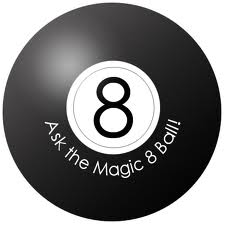— We take our content seriously. This article was written by a real person at BREL.
 If you’ve been reading this blog for a while, you know that I periodically like to search through Google Analytics and find out what people are searching. It always amazes me how people use Google as a magic 8-ball. Once again today, I answer frequently asked questions from Toronto Buyers:
If you’ve been reading this blog for a while, you know that I periodically like to search through Google Analytics and find out what people are searching. It always amazes me how people use Google as a magic 8-ball. Once again today, I answer frequently asked questions from Toronto Buyers:
1. Is it a good time to sell a house in Toronto and buy a condo?
Well that depends on your goals. Is this an investment or do you live in it? There are important lifestyle differences between owning a condo and owning a house (you can read about them in Condos vs Houses blog) and as we frequently report in our market updates, the condo and house markets in Toronto behave very differently. If you’re looking to lock in the price appreciation of your house and spend less overall money on housing, than selling your house and buying a condo is a relatively safe alternative. If your number one priority is increasing the value of your real estate investment, than it’s important to remember that historically, houses have appreciated higher and faster than condos.
2. I thought I qualified as a first-time buyer but I didn’t. Do I lose my deposit?
If your offer is conditional on financing and you discover that you don’t qualify as a first-time buyer during the conditional period (meaning that you won’t get to use up to $25K of your RRSP’s as a downpayment and aren’t eligible for first time buyer rebates and tax breaks), then you have a legitimate reason to not waive your financing condition. If you don’t waive your financing condition, you get your deposit back. If your offer is firm – meaning that there are no outstanding conditions, you are obligated to close on the transaction or risk losing your deposit and getting sued.
3. How much are legal fees to buy a house in Toronto?
Legal fees vary by lawyer, but a house under $500,000 will generally cost about $1,800 in legal fees (all-in) in Toronto. We love Feld Kalia’s online legal fee quote
4. What’s required to buy a house in Ontario?
You’ll need at least a 5% downpayment to buy a house in Ontario. If you have less than 20% downpayment, you’ll be required to purchase CMHC insurance (which provides protection for the lender). Lenders will also look at your income and ability to pay a mortgage, the amount of debt you owe and your credit history. If you aren’t a resident of Canada, you’ll be required to have a larger downpayment.
5. How can I buy a house if I have no money and bad credit?
More importantly, WHY do you want to buy a house if you have no downpayment and bad credit? This is how the US got into problems. If you want to buy a house, take the time to save a downpayment and fix your credit rating. Owning a home isn’t a right. Prove to yourself that you can be responsible enough to own a home by taking control of your financial health.
6. Who pays land transfer tax in Ontario – the Buyer or the Seller?
Toronto and Ontario land transfer taxes are always paid by the Buyer. Sorry.
7. How can first-time Buyers conquer their fears?
Do your research (read this blog) and work with a REALTOR who understands the needs of first-time Buyers. Spend some time defining your real goals, take time in making the decision to purchase a condo or house and don’t spend all the money the bank is willing to give you.
8. What should I know before renovating a condo?
Every condo board has rules about what can and cannot be renovated and owners have to get approvals for many alternations, from adding a wall to putting decking on your balcony. ALWAYS call your condo board before undertaking any renovation. If you make alterations to your unit without the proper approvals, you may be required to tear everything down and it may cause issues when it’s time to sell your unit. It’s better to get approval than to ask for forgiveness later.
9. Where is the best school in Toronto?
Everyone has a different definition of what makes a ‘best school’, but check out our Toronto School Maps to see how schools rank by neighbourhood.
10. How much is a bank appraisal?
Most lenders are requiring an appraisal these days (meaning they send in an independent appraiser to justify how much you paid for a specific property before they give you the mortgage). Fees for appraisals are in the $300-$500 range, but many banks (including RBC) will pay the appraisal fee for you.
Stay tuned for part 2 of our FAQ for Buyers next week.
